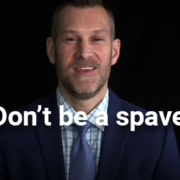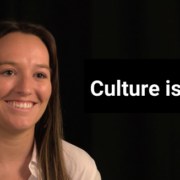The Magic Six P’s of Success
Problem: Poor planning – short/medium/long-range goals
You may be familiar with the acronym “6 P’s”: Prior Proper Planning Prevents Poor Performance. You may have even used this yourself to help advance your career. In your financial life, the 6 P’s are essential to promote long-term strategy, goal setting, and success. Proper financial planning begins with spelling out your short, medium, and long-range goals. Said another way, the Magic 6 P’s of financial planning are Plan, Plan, Plan, Plan, Plan, Plan.
Plan 1: Establish needs and wants. Be open and honest about the kind of lifestyle you envision. What will make you comfortable? Happy? Secure? And at the same time allow you to celebrate your success? An important part of Step 1 is to understand your strengths, shortcomings, and your temptations. Are you a disciplined saver? Then push your savings to maximize each dollar. Are you a person unable to say “no”? Supporting others and causes is noble, and, in this case, a planned giving budget will help guide those decisions. Know who you are, acknowledge the things that may distract you, and be honest about past negative behaviors. Let it all out.
Establishing wants and needs isn’t all about setting restrictions. It’s about being real. And giving each dollar a purpose.
Plan 2: Set realistic goals. Have a conversation about your aspirations and dreams. This includes setting short-term goals— typically those that can be achieved within one year—like taking a vacation or buying a new car. Medium-term goals— those you would like to achieve in 3-5 years—like buying a home, starting or adding to your family. Long-term goals, like what you envision for your next career, retirement, or a vacation home that helps you unplug from your demanding schedule.
Plan 3: Build a strategy to reach those goals. Now, you have established a strong sense of who you are, what you want, and what your future looks like. Building a successful strategy is the process of combining the direction you will take with the goals you have to achieve what you want.
Plan 4: Architect the details. This is where details are defined, and the fundamentals are put in place. It is your roadmap to preserving, protecting, and building wealth. It’s your HOW.
Plan 5: Execute and automate. Your plan should be easy to execute and effortlessly automated. Everything is put in motion so you can feel confident that while you are focused on building professional successes, your well-constructed financial plan is working hard to provide safety and building the ability to achieve your short, medium, and long-range goals.
Plan 6 thru infinity: Evolve. You and your financial advisor will review annually and make any needed modifications, based on the original foundation of your plan. Adjust for any changes – big or small – in your career and earnings path. Pay attention to your financial dashboard (as a Verdence/PRO client, your dashboard is the Verdence Portal). Track your success in reaching your short, medium, and long-term goals.
Translating the Magic Six P’s into financial independence takes strong D. Discipline. And surrounding yourself with those who will help and encourage you along the way.







